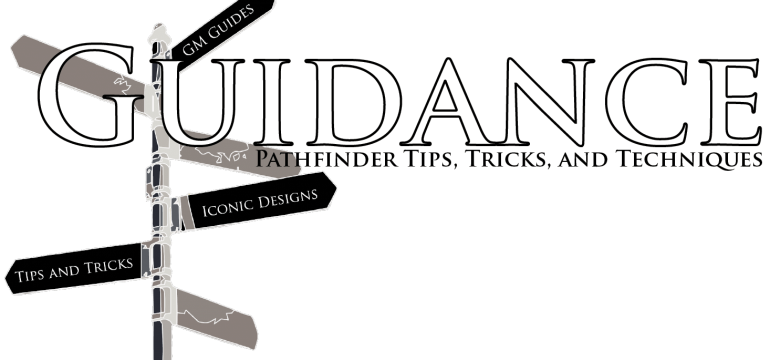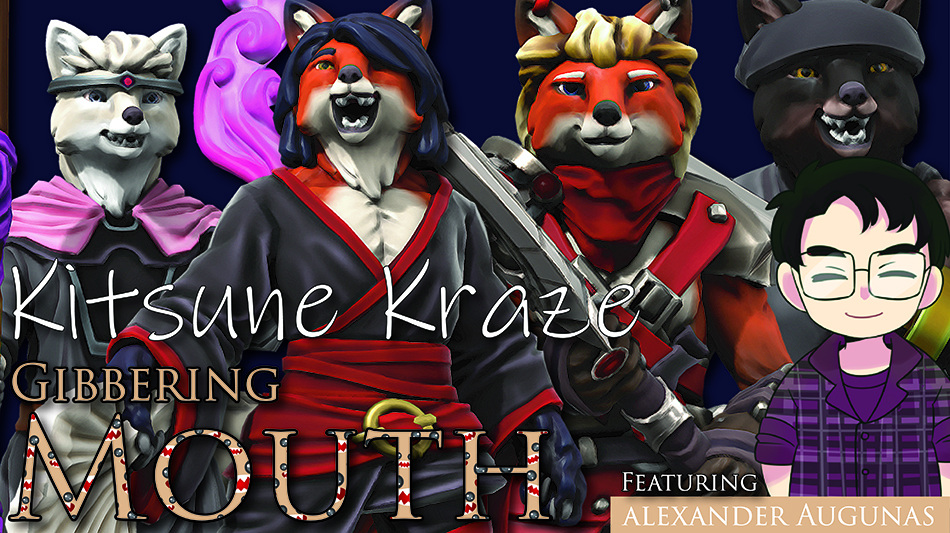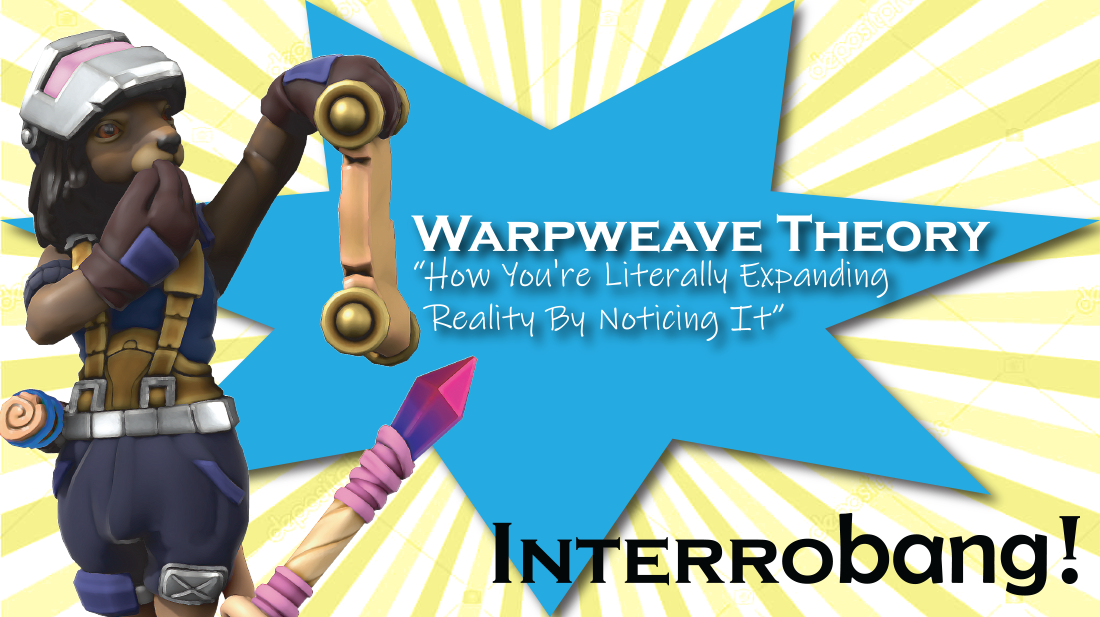For over the past year, I’ve been playing in a friend’s Reign of Winter game. Super fun, can’t recommend that Adventure Path enough. Over the course of my 3.5/PF career, I’ve played a bunch of characters of a bunch of different classes. Despite this, one of the only character classes I hadn’t played much (see: a single 3.5 game that never took off of the ground) is the bard.
To me, the bard was just a class. I never really understand why the bard diehards loved it so much, nor did I understand why the haters hated it so much. I was also in this really weird position where about half of my 3.5 ground hated the bard because, “The bard can’t DPS, man!” where the other half loved it. As mentioned, I played one game as a dhampir bard WAY back in, like, 2008 or 2009 and that was it.
Being the inquisitive guy I am, after a LOT of internal discussion, I decided to round out my Reign of Winter’s PCs by picking a bard. Note that I say “round out” in only the most general of senses, as our group did not (and still does not) have a traditional 9th-level arcane spellcaster, and I spent a LOT of time trying to decide whether to play a 9th-level arcane spellcaster or a bard. While I’ll never know what could have been, I would absolutely LOVE to take some time to tell you about my experiences as a bard, what worked for me and what didn’t work for me, and if you’re on the fence, maybe you’ll be able to decide whether bard’s right for you too.
Rocky Start
From my perspective, being a bard was rocky for the first book in Reign of Winter. I got a taste of just how rocky life would be when I opened a door and was mauled by a trio of zombies, knocking me unconscious in the very first turn of the very first fight. I had built my bard to be a general skill-focused character who was very skill focused; I used trades to grab Disable Device, my spells were quality-of-life abilities designed to help my party out of a pickle, and of course I had inspire courage. In fact, I had all of the standard bard abilities—I didn’t take a single archetype on this character at first.
And I was rewarded with several additional “knock out” moments. I failed to disable a trapped chest and was knocked out by the trap’s damage. I was attacked by a bunch of rabid animals and knocked unconscious. I was left sitting in the snow, singing desperately to help my allies while at 0 hit points holding my internal organs in. Great times!
Basically, my experience was that as a low-level bard, you start singing and you keep singing if you can. That’s your thing. Its what you do. There are other abilities that you can take that are good, but when you’re in a martial-heavy party like I am (a bloodrager, a rogue, and a ranger, plus me and a life shaman), that extra +1 to hit and damage was basically all those melee types needed to make their attacks connect WAY more than they have any right to. It was a lesson that I learned quickly, but it also made the early levels (I’d say below 5th) really, really boring.
The Prestige Class Quandry
Another thing that I tried to do early on was build into the Battle Herald prestige class. I had a player in a home game I ran who went battle herald, and he was absolutely AMAZING, and it was a build I wanted to try for myself. So I went bard / cavalier (daring champion) for the free Weapon Finesse, and carried around a rapier and a bow. The idea was that I could Dex switch hitch, and ultimately shoot and stab somewhere within the range of our ranger (who is a bow nomad kasatha) and our unchained rogue.
Let me tell you folks, that was a HORRIBLE idea for me. The prestige class works, and it works well, but the fact remains that I was trying to build a niche for myself as “the generalist,” but it didn’t work. Truth is that when another PC is better than you at everything, you end up being inconsequential rather than general. It was a hard lesson to learn, but thankfully my GM let me spend some gold and use an NPC bard we met along the way as a trainer so I could ditch my cavalier levels for straight bard levels, and lose some of the other niche abilities I had. For instance, having a trait and ranks in Disable Device didn’t matter when we had a trapfinding rogue and a trapper ranger. Having two people cover a base is fine, but truth was that I was a third wheel, and no one needs a third wheel in Pathfinder. So I ditched the cavalier levels and the Disable Device trait and rebuilt my character to capitalize on things our party didn’t have—arcane spellcasting, buffing, social skills, and Knowledge skills. It ended up REALLY working out for me; I clicked into these roles almost instantly since they were largely vacant prior to my focusing. I became the Know-It-All who could talk our group out of basically any problem. Better still, I was now Level 5—2nd level spells and an inspire courage bonus of +2 does amazing things for the bard.
Alex’s Bard Strategy
As a bard, I had a general strategy for how I decided what options I would take. My strategy looked like this:
- Does it keep me generally away from the front lines? My time going for battle herald made me realize that I did NOT want to be near the front lines if I could help it, so I only took spells and feats that let me stay away from certain doom. I grabbed feats that let me shoot a shortbow pretty well when I didn’t want to magic, and I made sure that the majority of my spells could be cast with some distance between myself and my target. After all, most of my allies were in melee, and I decided that was NOT where I wanted to be. I spend most of my time around 30 feet from enemies, plinking them with arrows whenever I don’t have spells to cast. To further supplement this strategy, I took spells like jester’s jaunt and dimension door to help me (and my allies) keep distance when I needed to. It actually came into effect in our last game, where I teleported myself and my ranger ally directly out of the way of a massive Improved Vital Strike death machine because holy crap, I did NOT want to be near those jaws!
- Does it allow me to do something that no one else in the group can cover? I had spent enough time with my battle herald build to know that I needed to be able to bring something new and different to the table to have fun. Since our only other spellcaster is a shaman, this was pretty easy to accomplish. Our spell lists don’t overlap much, but when they did, I erred on the side of picking something different rather than doubling up.
- Can it get us out of jams? This ended up being WAY more important than question #2. I picked most of the arcane utility spells that I had access to that let the party escape trouble or deal with enemies. For instance, glitterdust for invisible creatures, or grease for big creatures with weapons (or for preventing charges, which is AMAZING). Spells like hold person/hold monster, dimension door, liberating command, and saving finale have let me provide an answer to a problem so many times, I can only name a few before I risk you all getting bored and reading something else! One time, I dimension doored my party out of a TPK. Another time, I hit a miniboss who was so mobile that she was impossible to full attack with hold monster as a readied action and paralyzed her against all odds (she was a monk!). I’ve rescued friends from being swallowed using liberating command, allowed friends to remake vital saves with saving finale, and one time, I even used the countersong ability to nullify a suggestion spell. Having the answers to those problems felt incredible, and it really made me appreciate my bard more.
- Does it make my allies better? When you play a bard, your primary job is to make your allies better. No other spellcaster has the perfect spell list that you have for this purpose, not even the wizard. You get certain buffs before sorcerer/wizards, and you get plenty that they never receive. Inspire courage is obviously the bread and butter of this playstyle, but the bard has plenty of other tricks up his sleeve. Among them, haste (everyone is a murder machine!), heroism, good hope (its like heroism cranked up to 11 and basically bard only), and heroic finale. Oh man, heroic finale. I LOVE that spell. You basically end your performance to give another ally an instant move action or standard action. My favorite thing to do with that spell is to grant our party cavalier (formerly our bloodrager, one death later) a standard action so he can immediately use his Improved Vital Strike attack as an immediate action. One time, I used heroic finale like this to end a combat. Another dumb plan of mine is to use it when an adjacent spellcaster manages to cast defensively. Screw you, spellcaster! He’s attacking you ANYWAY! The final spell that I picked was greater invisibility, which I basically took for our party rogue. Not only was it a great defensive buff for him, but it also let him murder things indiscriminately. How great is that?
- Do I have a way to ruin everyone’s day? Now, when I say this, I don’t mean the party. I mean my enemies. I believe that an effective spellcaster has an action that has a reasonable chance to affect every kind of opponent, meaning that you should always have something that you can “do” in every situation. For my bard, this mean that I a) wanted to be decent at attacking with at least one kind of weapon, in case my spells weren’t going to be the best option, b) wanted to have a spell that targeted each kind of saving throw. As a bard, your vs. Reflex and vs. Fortitude options are somewhat limited, but I like having grease as a general, “In case they’re not nimble” spell, and ear-piercing scream in case they have bad Fortitude. (Note—I still need a bit of luck with these super low-level spells, but they work.) For Will, I have PLENTY of choices—namely hold person, hold monster, and hideous laughter. Overall, this means that I usually have a “day wrecking” spell for every occasion.
This reevaluation of my bard’s strategy helped me tremendously in how I played my bard, and I like to think that I’m a generally useful party member for it. I typically have a spell for most situations, whether that’s stopping an enemy or boosting an ally, and when all else fails I’m a decent shot with my bow. Sadly, I’m pretty sure that to 3 of 4 of my fellow party members, I’m, “The guy that gives me +5 to attack and damage between inspire courage and good hope.” And you know what? That’s A-okay by me!
So until next time, I’m Alex Augunas and I’m always here for YOU when you need a little bit of Guidance. Take care!
Alexander “Alex” Augunas has been playing roleplaying games since 2007, which isn’t nearly as long as 90% of his colleagues. Alexander is an active freelancer for the Pathfinder Roleplaying Game and is best known as the author of the Pact Magic Unbound series by Radiance House. Alex is the owner of Everyman Gaming, LLC and is often stylized as the Everyman Gamer in honor of Guidance’s original home. Alex also cohosts the Private Sanctuary Podcast, along with fellow blogger Anthony Li, and you can follow their exploits on Facebook in the 3.5 Private Sanctuary Group, or on Alex’s Twitter, @AlJAug.





